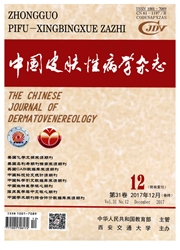

 中文摘要:
中文摘要:
沙眼衣原体的持续感染是现阶段临床最难解决的问题,可以引起如沙眼性失明、输卵管性不孕和长期的上生殖道感染等。抗生素难以清除部分患者体内的沙眼衣原体。另一个难以解释的问题是沙眼衣原体为什么能在人体长期存在?沙眼衣原体感染难以激发人体的有效免疫、那么自噬机制能在衣原体持续感染中起到什么作用?近几年来,随着对沙眼衣原体感染与自噬机制的关系研究逐渐增多,对于沙眼衣原体通过抑制宿主细胞的自噬机制而自身繁殖以及通过增强自噬机制加强胞内清除沙眼衣原体有了一定的认识,本文就此作一综述。
 英文摘要:
英文摘要:
Persistent infection with Chlamydia trachomatis is the most challenging issue in clinic. It can cause blindness, tubal infertility and long-term upper genital tract infection. It is difficult for antibiotics to eliminate Chlamydia trachomatis from some patients. It is also difficult to explain why Chlamydia trachomatis can survive in humans for long-term. Chlamydia trachomatis infection cannot easily induce effective immune responses, and then what is the role of autophagy mechanism in the persistent chlamydial infection? Recently, with the increasing research in the association of Chlamydia trachomatis infection and autophagy mechanism, it becomes aware that Chlamydia trachomatis reproduce via inhibition of autophagy in the host cell and that intracellular Chlamydia trachomatis can be eliminated through enhancing autophagy. This aspect is reviewed here.
 同期刊论文项目
同期刊论文项目
 同项目期刊论文
同项目期刊论文
 期刊信息
期刊信息
